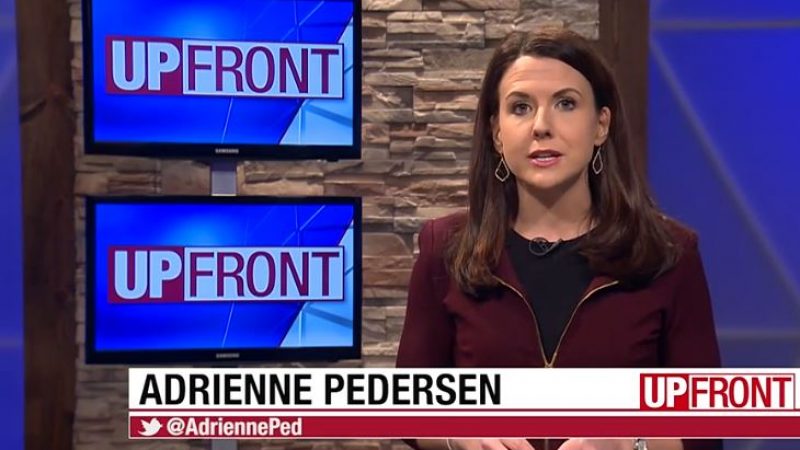Prominent backers of UW-Madison have formed a group to educate the public about the economic value of the university.
Amber Schroeder, executive director of Badgers United, said business leaders saw a need to explain what the university means to communities around the state, and inform people about its economic impact, estimated to be about $15 billion.
I think it’s important to know that UW-Madison, for every dollar that comes in, $24 come out, and bounces across the entire state. It’s not just a Madison thing. It’s a statewide thing,” Schroeder said in an interview that aired Sunday on “UpFront,” produced in partnership with WisPolitics.com.
The board of Badgers United includes Major League Baseball Commissioner Emeritus Bud Selig, former UW System President Katharine Lyall, and philanthropists John and Tashia Morgridge, who have donated millions to UW.
>> WisPolitics is now on the State Affairs network. Get custom keyword notifications, bill tracking and all WisPolitics content. Get the app or access via desktop.
Badgers United also will advocate for lifting the tuition freeze, Schroeder said.
“High-achieving students don’t want cheap education. They want quality education,” she said.
She said UW-Madison should “be at market rate for resident tuition” compared to other Big 10 schools.
Also on the program, WisPolitics.com Editor JR Ross said Capitol insiders expect Democratic Gov. Tony Evers to use his partial veto authority on the nearly $82 billion, two-year state budget the Republican-controlled Legislature sent to him.
“I think the going bet in Madison is that he’s going to sign it, but after reworking it with the partial veto authority,” Ross said.
Evers’ other choices are signing the budget, or vetoing it entirely, something that hasn’t been done in Wisconsin since the executive budget process began in 1931.
Republicans struck the Medicaid expansion from the budget Evers introduced earlier this year, but that means it will stay alive as a political issue, Ross said.
“By not doing the Medicaid expansion in the budget, Republicans have kept it alive as an issue for Democrats to run on next fall and say ‘Hey, the public wants this, Republicans didn’t give it to you, we’re here to address health care.’ So, it could be a potent issue for them come next fall,” Ross said.
In another segment, Matt Cordio, president of Skills Pipeline and the founder of Startup Milwaukee, said Wisconsin’s growing technology industry seriously needs workers.
“There’s a massive shortage of tech talent here in Wisconsin, and we need to really work and take every available opportunity to build and develop new tech talent,” Cordio said.
One thing that could help get more tech talent in the pipeline, Cordio said, are income-share agreements, a new type of financial arrangement that is an alternative to traditional student loans. Instead of borrowing money at a certain interest rate, students agree to have a percentage of their future earnings withheld to cover the cost of their education.
Purdue University is trying out ISA’s, said WISN 12 News reporter Matt Smith. He also reported on a local program that teaches coding to students, some of whom are using ISA’s to cover the cost of the program.
Cordio said ISA’s are a “unique new option for students to take advantage of and finance their education without going into debt.”
See more:
http://www.wisn.com/upfront



